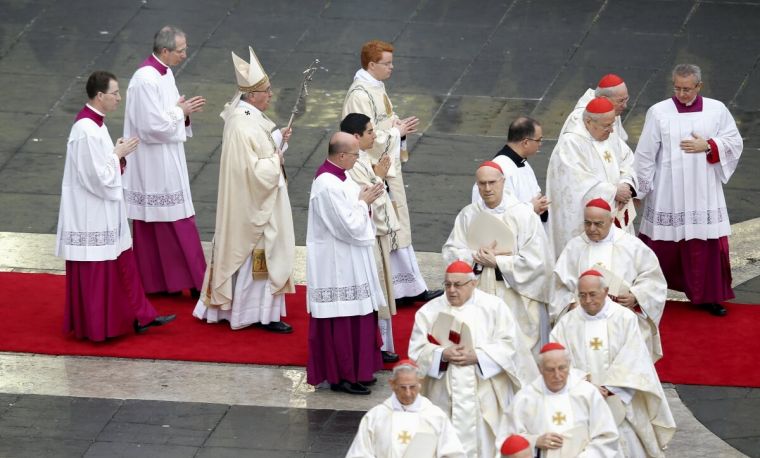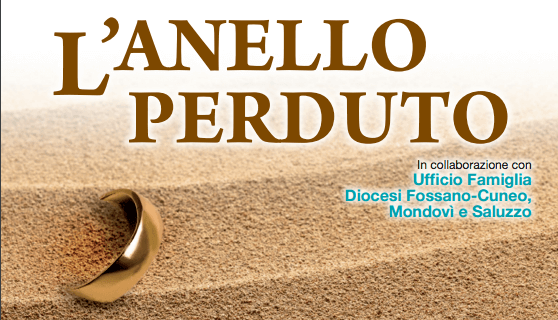Pope to meet group of divorced and remarried Catholics

Pope Francis has invited a group of divorced and remarried Catholics to discuss the controversial issue of whether such individuals should be allowed officially to receive Holy Communion at Mass.
The group is from the Italian diocese of Fossano and is called L'Anello Perduto, or the Lost Ring, launched in 2008. They have also published a book in 2011 of the same name.

The meeting comes shortly before the publication of his document on the family which Pope Francis is writing after the two synods of 2014 and 2015 and is expected in March.
Communion for Catholics who have had a civil marriage after divorce emerged as the most contentious subject at both synods.
Liberal bishops believe Communion should be opened up to Catholics who are in so-called irregular unions, but conservatives want no change in the rule that remarried divorcees must be barred from Communion unless they have first obtained an annulment.
This is on the grounds that Jesus taught marriage is for life.
In the current Year of Mercy, campaigners for reform had been hoping that Pope Francis would relax the ban but recent indications are that this might be overly optimistic. He has already changed the rules to make it less difficult to obtain an annulment.
"While the outreach certainly confirms Francis' interest in better pastoral care for divorced Catholics who have remarried outside the Church, it doesn't quite tip his hand in terms of which way he may be leaning on the Communion debate," reports Crux.
In a telephone call last month, Pope Francis invited the coordinator of L'Anello Perduto, Deacon Paolo Tassinari San Sebastiano, and his wife Alessandra Rosano to the meeting.
Tassinari told Fossano diocesan paper La Fedeltá that he received the call at lunchtime on Saturday 30 January.
"Deacon Paul Tassinari? I am Pope Francis!". The Pope called after the group of separated and divorced Catholics wrote to him about the Lost Ring project.
In their letter, the 60 members wrote: "In separation we have suffered abandonment, betrayal, the break-up of families, the collapse of the deepest values we believed in, the loss of identity and of all the safety, [our] confidence in God and at times the faith," the group wrote in the letter. In this traumatic context, the Church has proven to be generally indifferent, or even hostile, and God seemed distant and aloof."
Tassinari said in the diocesan paper: "Initially I thought it was a joke." But the Pope replied in his distinctive voice: "I'm not a ghost, this is Pope Francis."
Tassinari said he was with his son Samuel, who was quick to pick up his cell phone and start recording audio, so they recorded two-and-a-half minutes of conversation that he will in any case never forget.
He said the Pope invited the group to an audience in the Vatican, but the date has yet to be fixed.
"After the phone call, I said to my son: 'He was the Pope!' And I burst into tears!'"
Even now, he said he could hardly believe that Pope Francis had wanted to devote "a crumb of his time" to ask about their "little project".
The deacon added: "But his gesture is another example of the affection and esteem that the Bishop of Rome has for a periphery of human beings, such as someone who lives or has lived the failure of his marriage. Before hanging up he asked me: 'Pray for me!'"
According to well-informed commentator John Allen, imminent change on the issue in the Pope's apostolic exhortation is unlikely.
Thomas Reese on NCR online wrote: "Francis has forcefully spoke of the supremacy of mercy and against legalism, which would indicate an openness to readmission to Communion. Or perhaps the Pope will do something extraordinary and admit that the hierarchy is divided on this question and say that it requires further study and conversation in the church before a definitive answer is given. That would be a first."











